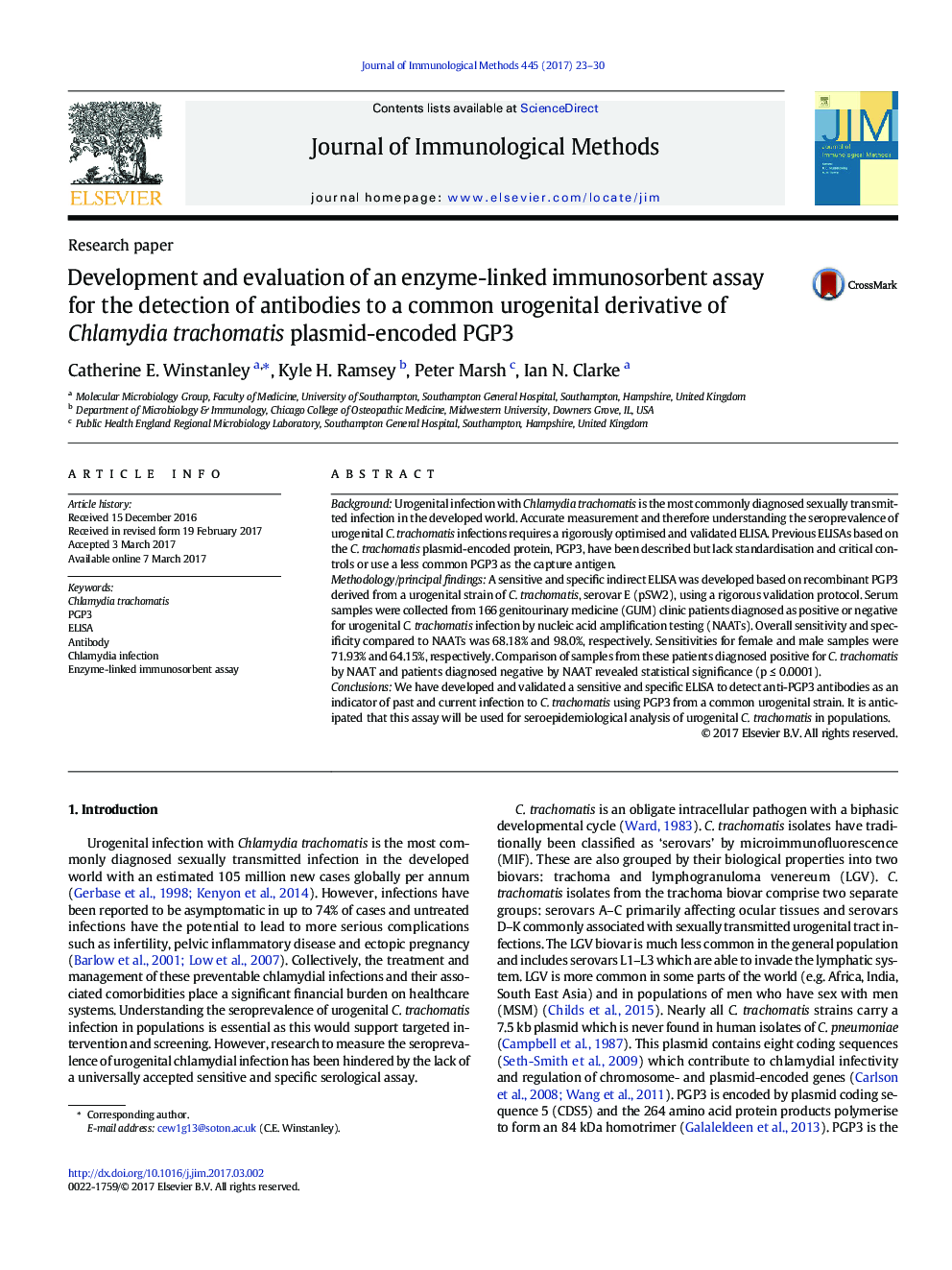| Article ID | Journal | Published Year | Pages | File Type |
|---|---|---|---|---|
| 5522054 | Journal of Immunological Methods | 2017 | 8 Pages |
BackgroundUrogenital infection with Chlamydia trachomatis is the most commonly diagnosed sexually transmitted infection in the developed world. Accurate measurement and therefore understanding the seroprevalence of urogenital C. trachomatis infections requires a rigorously optimised and validated ELISA. Previous ELISAs based on the C. trachomatis plasmid-encoded protein, PGP3, have been described but lack standardisation and critical controls or use a less common PGP3 as the capture antigen.Methodology/principal findingsA sensitive and specific indirect ELISA was developed based on recombinant PGP3 derived from a urogenital strain of C. trachomatis, serovar E (pSW2), using a rigorous validation protocol. Serum samples were collected from 166 genitourinary medicine (GUM) clinic patients diagnosed as positive or negative for urogenital C. trachomatis infection by nucleic acid amplification testing (NAATs). Overall sensitivity and specificity compared to NAATs was 68.18% and 98.0%, respectively. Sensitivities for female and male samples were 71.93% and 64.15%, respectively. Comparison of samples from these patients diagnosed positive for C. trachomatis by NAAT and patients diagnosed negative by NAAT revealed statistical significance (p â¤Â 0.0001).ConclusionsWe have developed and validated a sensitive and specific ELISA to detect anti-PGP3 antibodies as an indicator of past and current infection to C. trachomatis using PGP3 from a common urogenital strain. It is anticipated that this assay will be used for seroepidemiological analysis of urogenital C. trachomatis in populations.
